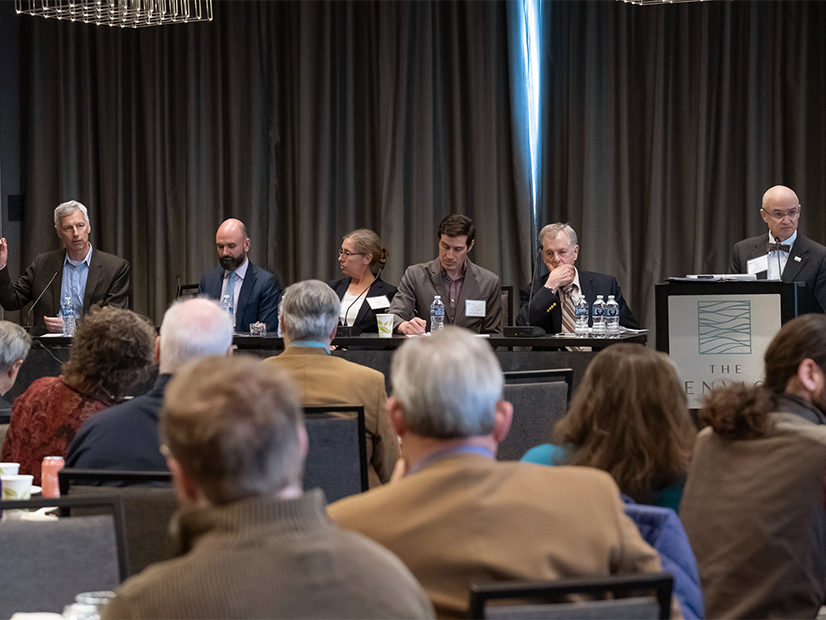
PORTSMOUTH, N.H. — The first meeting of a new era for ISO-NE’s Consumer Liaison Group featured few fireworks but plenty of substantive discussion of the challenges facing New England’s energy transition.
The CLG, a forum for connecting the RTO with the public, met Thursday, its first gathering since a December vote in which six climate activists were elected to its coordinating committee. (See Climate Activists Take Over Small Piece of ISO-NE.)
“Like the Red Sox, the Consumer Liaison Group is experiencing a reset,” said Donald Kreis, a coordinating committee member and the state of New Hampshire’s Consumer Advocate. “Our record is no wins and no losses. It’s a new day at the CLG, and there’s reason to be optimistic about making consumers have a stronger and better liaison to our grid operator.”
Dan Dolan, president of the New England Power Generators Association, laid out what he sees as the stakes for decarbonization in the region.
“The responsibility we have in New England … is to create a demonstration to other parts of the country and the world that you can move forward on a decarbonized future in a way that promotes economic prosperity, [that it] can be done in a resilient, reliable fashion and maintains affordability for the consumers,” Dolan said.
A running theme of the meeting was identifying areas of agreement between ISO-NE, which has been criticized for moving too slowly on greening the region’s energy mix, and those outside who have been pushing it for years.
“The ISO recognizes that climate change is happening right now, and that we need to reduce carbon emissions to solve this problem,” said Susan Muller, a senior energy analyst at the Union of Concerned Scientists, who spoke on a panel during the meeting.
“It’s really important common ground, and I know there’s a struggle right now to find common ground,” she said.
But where Muller argued the grid operator has not caught up to public sentiment is on the time constraints of climate change, which she said call for rapid action.
“We’re concerned that without the time constraints being factored in, we’ll perpetuate the situation, and we don’t have a lot of time,” she said.
Anne George, ISO-NE’s vice president of external affairs, represented the organization at the meeting, as she’s done many times before. She gave a rundown of key issues facing the RTO, including its recently completed Forward Capacity Auction and two capacity deficiency events from the past winter that have raised questions about New England’s grid in cold weather.
Bob Ethier, a vice president for system planning at ISO-NE, also presented during the event.
“The big thing that I want to convey today is what we are doing to facilitate the transition to clean energy,” he said.
Among those efforts: “a heck of a lot of studies,” as well as providing technical expertise, working on transmission development and supporting interconnection, Ethier said.
Several speakers pointed to siting as another major challenge for the clean energy transition.
New Hampshire State Rep. Michael Harrington, a Republican and self-described “climate realist,” said that New Englanders have shown they’ll fight tooth and nail to prevent projects from being built in their backyards, pointing to the slow progress of the Northern Pass transmission line as one example.
“What’s the message that New England’s sending to the rest of the business world out there? Don’t come here and build anything because we don’t want anything built,” he said.
New Hampshire itself is in a unique position in the region, as multiple panelists noted. Its progress on renewable energy has been slower than in surrounding states, even as the price of that energy has plummeted.
“While right now we might be sort of free riding off the policies of the states around us, pretty soon it means we’re going to be missing the boat,” said Sam Evans-Brown, executive director of Clean Energy New Hampshire.


